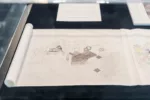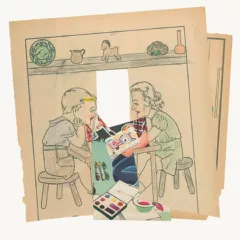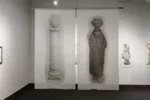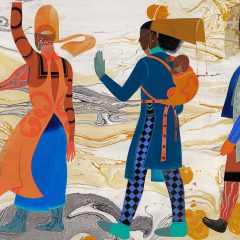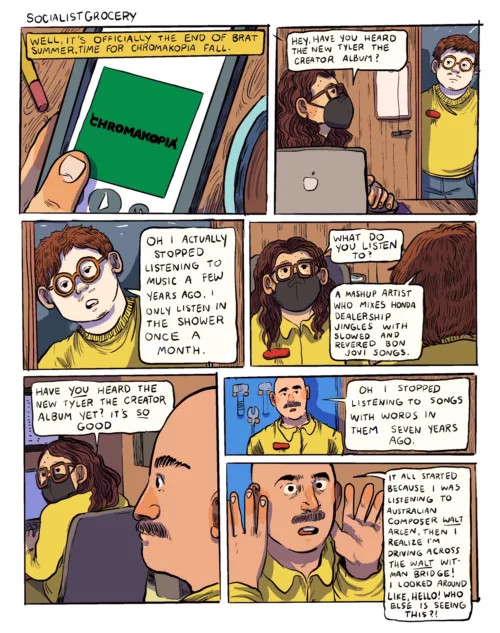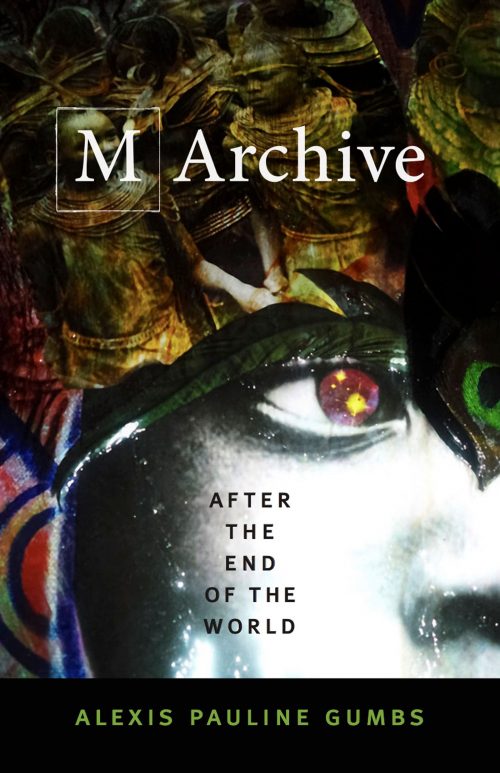
M Archive by Alexis Pauline Gumbs is a multi-disciplinary Black Feminist expedition, the middle-book in a triptych that combines poetry, fiction, and theory to envision the persistence of Black life through and beyond a series of disasters and cataclysms that currently are in full-swing. It is a work that exceeds genre and carries messages of warning and hope and clues for survival, back from a future of as of yet unaverted disaster. In this future, survival of the planet and of Black life is uncertain, but Black life has outstripped other cultures and continues to hold promise of the possibility of survival. Black life, specifically Black women are revealed to be the root and center of vitality, the labor and the care that makes all life and survival possible.
Simultaneously experimental in the twining of its narrative and approachable in register, the text of M Archive is a series of vignettes that hang in an emotionally complex constellation. The descriptions are detailed and thick. The short sections are formatted as a series of prose blocks that seem to be discrete short chapters. Most chapters are about a page. There are no uppercase letters, and the syntax suggests a text that has moved through orality to reach the page. It is direct, conversational, intimate, by turns afro-pessimist and resignedly hopeful. There is not so much a plot as a looping of a contiguous and multi-fold situation. In its sum, it’s as dark as it is beautiful, as intimate and fierce as it is dire. “The conditions of our bodies were simply the reflections of our storage units. and the conditions of of our rain forests. And so the landfill actually became an ontology. the ontology. // simply put. every piece of the planet was filled with trash. our minds notwithstanding. our bodies included.”
Most of the text is framed in terms of a we/us that survives and suffers a series of accumulating kinds of crises. Bodies are entwined with and embody global crisis. This implies Black life that survives beyond and separate from the rest of humanity. It The text exists in conversation with a Black feminist critical tradition, most closely intertextually tangled with M. Jacqui Alexander’s Pedagogies of Crossing: Meditations on Feminism, Sexual Politics, Memory, and the Sacred, for which endnotes provide references to particular phrases and paradigms referenced throughout. This underpinning foundational reading is both helpful to note and not strictly necessary to enjoy the text.
A she/her character appears throughout, a protagonist trying to understand a way forward. We don’t get a name or a personal history, the text forces the reader to concede that this is beside the point. The point is not an individual heroism, but a capacity for individual heroisms to lead to, unleash and support collective strategies of survival. “she sat on the floor with her spine tending to the left and focused. She closed her eyes and told herself she could breathe into every bone and there would be space for the message. // there was.”
The vignettes teach a current audience what has transpired in a near future to get to a place that is both more communal, spiritually awake, and unified, as well as several steps closer to total annihilation. In this future, we see how Black feminist thought provides humanity’s best chance for survival. In fact, we are taught, it is what has been holding connection and knowledge and care of the earth and its people together through all time.

M Archive: After the End of the World by Alexis Pauline Gumbs
Published: March 2018
Pages: 248
Illustrations: 8 illustrations
Available at Duke University Press and Amazon


